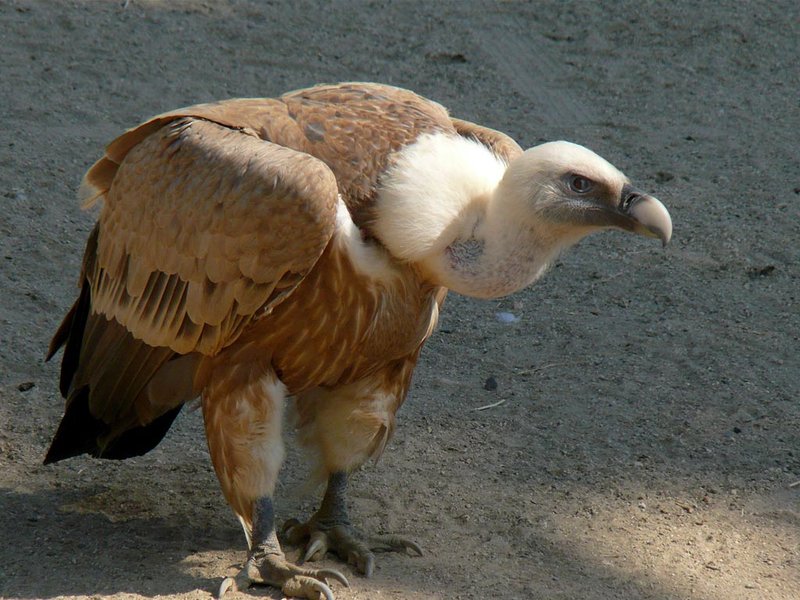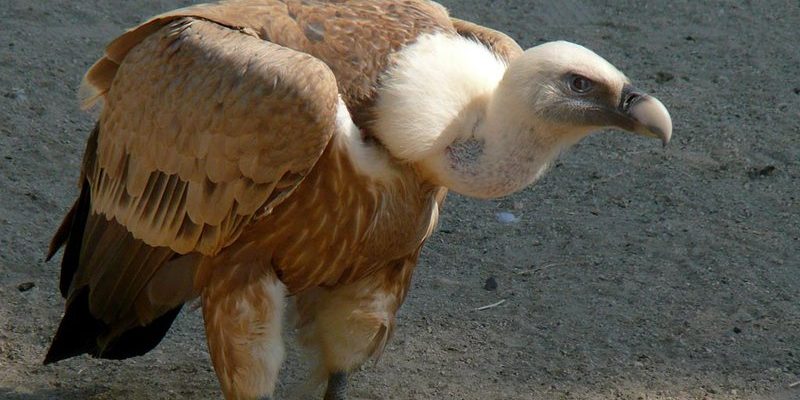
The Griffon vulture is not just any bird; it’s a large, majestic creature that plays a crucial role in the ecosystem. Picture it as nature’s clean-up crew, swooping in to feast on carcasses and help keep the environment tidy. You might be wondering, however, if these remarkable birds can pose a threat to us humans. Let’s dive into this subject and unravel the truths about the Griffon vulture.
Understanding the Griffon Vulture
The Griffon vulture, known scientifically as *Gyps fulvus*, is a large bird of prey found primarily in Europe, Asia, and parts of Africa. They have a wingspan that can reach up to 2.8 meters (about 9 feet), making them one of the largest flying birds. With their impressive wings and sharp beaks, they are built for scavenging, not hunting. They mainly feed on dead animals, which might sound a bit gruesome, but it’s crucial for the ecosystem.
These birds are known for their soaring flight and can often be seen gliding in thermal updrafts. The Griffon vulture has a distinct appearance, with a feathered neck and a massive build. Their coloring ranges from sandy brown to white, blending well with rocky landscapes. You might even catch a glimpse of them perched on cliffs or trees, waiting for the perfect moment to take flight.
Interestingly, living in a community is part of their charm. They often gather in large groups to feed, showcasing a social behavior that’s quite unique among birds. However, with their size and sometimes intimidating presence, it’s easy to see why some folks might feel uneasy around them.
Do Griffon Vultures Attack Humans?
Here’s the thing: Griffon vultures generally aren’t a danger to humans. They are scavengers, not predators. This means their focus is on finding dead animals rather than seeking out live prey. In most cases, they prefer to stay clear of human interaction. So, if you’re out hiking in their territory, you’re mostly safe.
That said, there are a few rare instances when vultures might be perceived as aggressive. If a Griffon vulture feels threatened—say, by an approaching human or another animal—it could defend itself. Picture this: you’re at a buffet, and someone gets too close to your food. You might react, right? Vultures can be similarly territorial around their food sources.
Moreover, they’re quite powerful creatures with strong beaks. Imagine a bird capable of tearing through tough flesh—it can be intimidating! But considering these instances are exceptions rather than the rule, it’s essential to understand that they don’t actively hunt humans.
Why Do Some People Fear Griffon Vultures?
Fear often stems from misunderstanding, and the Griffon vulture is no exception. Many people associate vultures with death and decay due to their scavenging habits. It’s like seeing a snake and instantly thinking it’s dangerous, even if it’s just sunbathing peacefully. This fear is often amplified by scary movies and myths that paint vultures as sinister creatures.
Additionally, their size can be quite imposing. With wingspans that rival those of small aircraft, it’s easy to see why someone might feel intimidated. The mere sight of a large bird circling overhead can fuel anxiety, even if they pose no real threat.
It’s also important to note that misconceptions about the Griffon vulture can lead to unnecessary panic. While they might look fierce, they are generally harmless to humans. In fact, they provide essential services to the environment by consuming animal carcasses, which helps prevent the spread of disease. So, while they may appear daunting, they are, in reality, doing society a favor.
How Griffon Vultures Interact With Humans
In certain regions, Griffon vultures have become accustomed to human presence. For example, in some parts of Europe, these vultures might scavenge near farms or ranches. Farmers might even attract these birds to their land to help with dead livestock. It’s a bit of a symbiotic relationship—humans benefit from the vultures’ scavenging while providing a food source.
However, this closeness does require some caution. While they are not dangerous, it’s still wise to respect their space. If you encounter a Griffon vulture, it’s best to observe from a distance rather than approaching them too closely. Just like any wild animal, they deserve their privacy.
Moreover, conservation efforts are underway to protect Griffon vulture populations. As they face threats from habitat loss and poisoning, many organizations are working to raise awareness and promote their protection. Through education, we can transform fear into respect for these important creatures.
Safety Tips When Encountering Griffon Vultures
If you find yourself in an area where Griffon vultures are present, here are some simple tips to ensure a safe and enjoyable experience:
- Keep a respectful distance: Admire these majestic birds without getting too close.
- Stay calm: If a vulture approaches you, don’t panic. They’re likely just curious or exploring their surroundings.
- Do not feed them: While it may seem tempting, feeding vultures can disrupt their natural behaviors and diet.
- Observe their behavior: Watch for signs of distress in the birds and back off if you sense they’re feeling threatened.
Following these tips will allow you to appreciate Griffon vultures while preserving your safety and theirs.
So, can the Griffon vulture be dangerous to humans? In most cases, no! These remarkable birds are essential components of our ecosystem, and their scavenging habits help keep our environment clean. While they might look fierce with their size and sharp beaks, they’re generally not a threat to people.
Instead of fearing these birds, we should appreciate their role in nature. Understanding them better is crucial, as knowledge can reduce fear. So next time you see a Griffon vulture soaring high above, take a moment to admire its grace and recognize its role in keeping our planet healthy. Let’s celebrate these avian wonders instead of fearing them!

